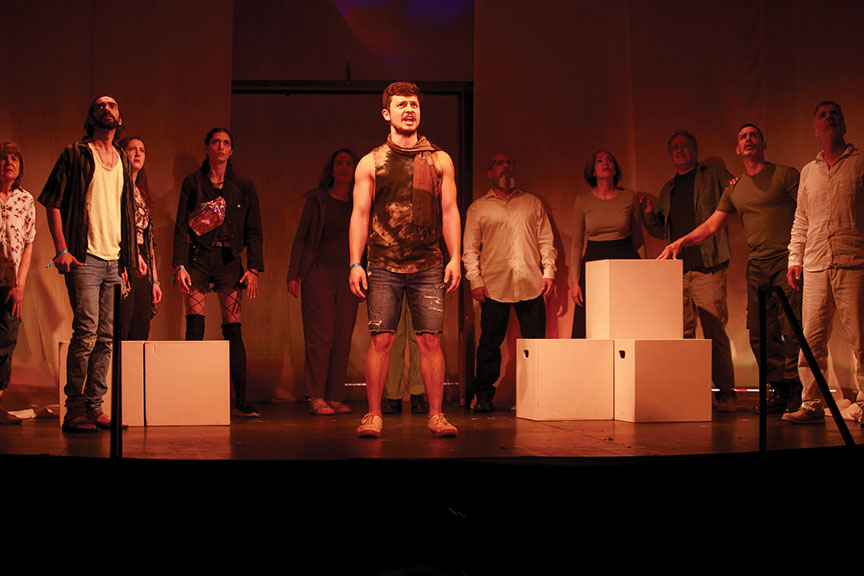
The same week Ireland’s Bambie Thug was embarrassing her country at Eurovision, in New York City two Irish investigative journalists premiered the first play about Oct. 7. Not surprisingly, it was difficult to find a theater willing to produce the play. And then it needed nonstop NYPD protection.
“Amazing that you can’t find a theater willing to put on a show about a massacre against Jews,” playwright Phelim McAleer, 57, said. “October 7 the Play: In Their Own Words” ultimately found a home at the Actors Temple Theatre, a theater and synagogue founded in 1917 as the West Side Hebrew Welfare Union. “A play about the Jewish people needs police protection in New York. In 2024. How did we get here?”
McAleer and his wife Ann McElhinney, 60, were aghast at how quickly the world wanted to forget Oct. 7. “We were in Ireland. On the morning of Oct. 8, the media and people we met were immediately talking about how awful it was that they were turning off the electricity in Gaza. We were quite shocked by how efficiently the media caused people to look at something else so quickly and not talk about this massacre,” McAleer said. “There was a story that wasn’t being told, and that’s what we specialize in: Telling untold stories.”
The couple is known for exploring tough issues through film, plays, books, and podcasts through their Unreported Story Society. “This is a play about the truth. It seems there are a lot of people who don’t want the truth on stage in New York,” said McAleer.
“This is a play about the truth. It seems there are a lot of people who don’t want the truth on stage in New York.” – Phelim McAleer
McAleer and McElhinney flew to Israel in November, their first visit to the country. “It was truly a unique privilege to speak to the people we met,” said McElhinney. “Remarkable people, each of them very strong … in their own way.”
They spent three weeks in Israel, speaking with the wounded, rescue workers, worried families, and a police officer who killed several Hamas terrorists. The play presents 13 detailed accounts drawn verbatim from these interviews. “Stories of tragedy, heroism, fighting back, survival,” McAleer said. “We watched people describe the worst day of their lives, and their resilience, strength, courage, and hope are what you end up walking away with,” McElhinney.
In a barbershop in Tel Aviv, McAleer heard people talking about the Irish prime minister’s statement about Emily Hand, the 9-year-old Irish Israeli girl who had been kidnapped by Hamas. “He presented it as if she went missing,” McAleer said. “I apologized for being Irish for the first time in my life.”
“I told the people around me that I’m Irish and I apologize on his behalf. I said that not everyone in Ireland is like him, and we all got close, hugged each other. It was a very specific experience to be Irish and work on this story at this time,” McAleer said. “Hiding things just isn’t something that suits us. It’s an honor to tell such a story, and we will continue to tell it even in places where people don’t want to hear it.”
Verbatim theater is both a challenge and an opportunity, McAleer said. “You’re limited, but if in a regular play the audience sits back and absorbs what the playwright wrote for them, here they lean forward to listen to every word because they know it was spoken by a real person.”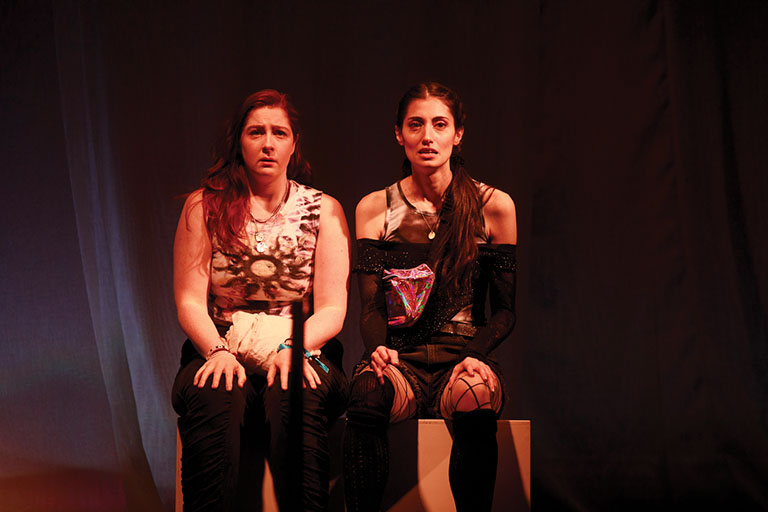
Amidst a background of explosions and screams, the play is a collage of 13 testimonies — from grandmothers and mothers who hid for hours in safe rooms wondering if their families survived; a policeman with only nine bullets left in his gun who killed several terrorists and saved dozens of his neighbors; an IDF soldier who defended his kibbutz and was shot five times by three different terrorists; a truck driver who saved over 100 people in his truck; and testimonies of those who narrowly escaped the massacre at the Nova Music Festival.
Some clips:
Isaac: At first when we saw the people on the paragliders, we thought they were Israelis. We waved at them: Shalom!
Michael: We got up about 8:30. That’s when I saw a message from Rachel [his daughter]. “Bombs. They are bombing us. We are trying to escape.” And that was it. Nothing else.
Shani: It’s like the end of the world, messy, everyone shouting, screaming, running, hiding … just chaos.
Biliya: I know he’s dangerous. But I wasn’t scared. How can I explain this? I know he only knows how to kill. I cannot relate to him as a human. It’s a something, it’s not someone … He doesn’t deserve my fear.
Avishag (8): Grandma, let’s pretend like we’re dead.
Orderly: You can’t believe what’s going on. Like, people are coming with their organs, with their limbs in bags.
Shani: I have started to keep Shabbat. I began to believe … I’ve found faith. My faith. I think God was with me that day.
The couple hopes the play eventually lands on Broadway, and then travels throughout the U.S. In the meantime, they’re planning to take the play on a tour of Ivy League colleges in the fall. “They need education they don’t get in their classrooms,” said McAleer.
The couple hopes “October 7 the Play” will also encourage leaders from other areas of the arts to speak out on behalf of Israel. They are disgusted that Hollywood has not taken a bigger stance, but it’s the silence from the music industry that really irks them. “They were hunted down and slaughtered at a music festival. Massacred, because they were Jewish.”
The couple was surprised at the resilience of Israelis. “Even in the darkest days, the Israeli people were able to be humorous,” he said. “Laughter is an act of defiance, too. You’re not going to destroy us. We’re going to rise again. Humor is both a coping mechanism and an act of defiance.”
The staccato intensity of the play leaves you feeling like you lived through a tiny fraction of what Israelis had to endure that day. It’s not a pleasant feeling but for American Jews, who are now enduring a level of anti-Semitism that none of us were prepared for, it can strengthen our own resilience.
And while it’s beyond sad that an Irish Catholic couple are braver than NYC’s entire theater district — heavily populated with Jewish playwrights and producers — one is ultimately left with a small amount of faith in humanity. The same kind of faith that Christian resistance to Hitler gave European Jews.
Karen Lehrman Bloch is editor in chief of White Rose Magazine.
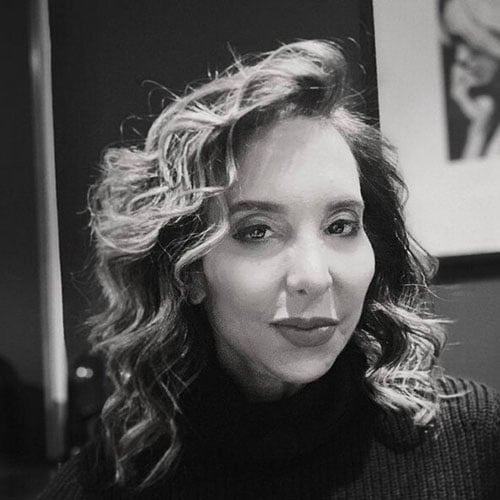






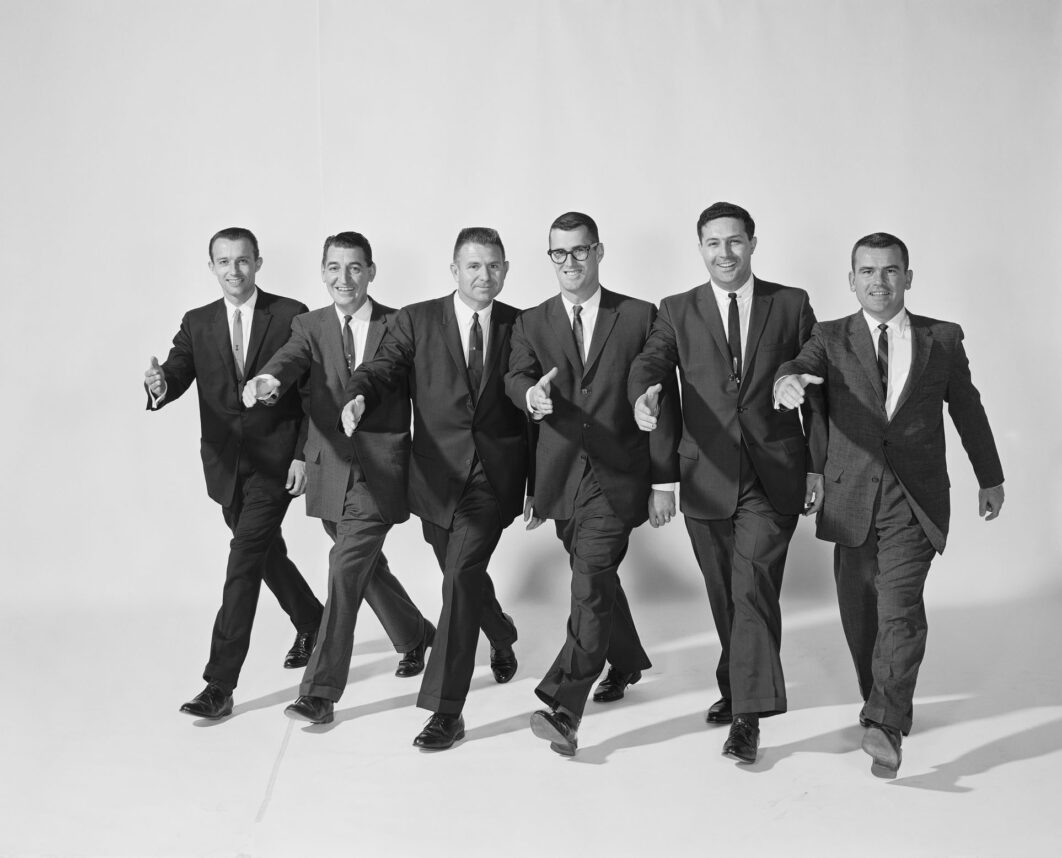

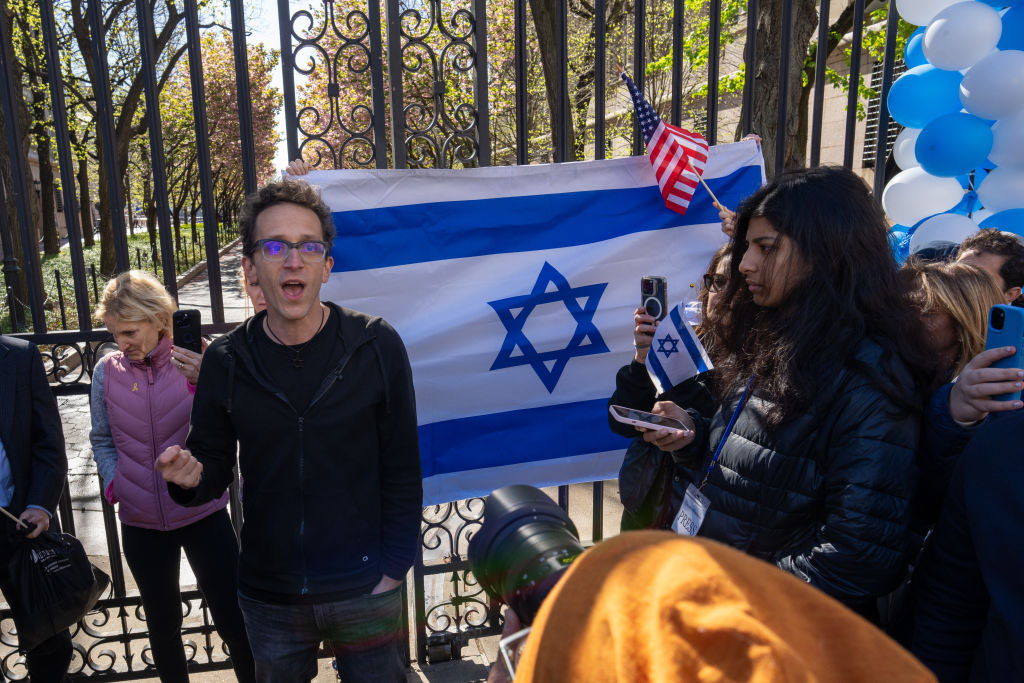

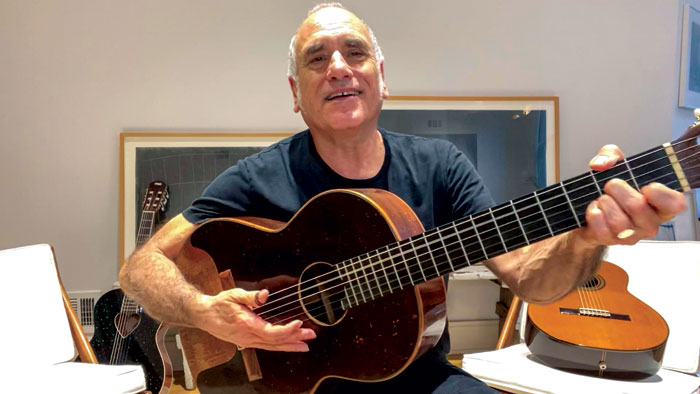



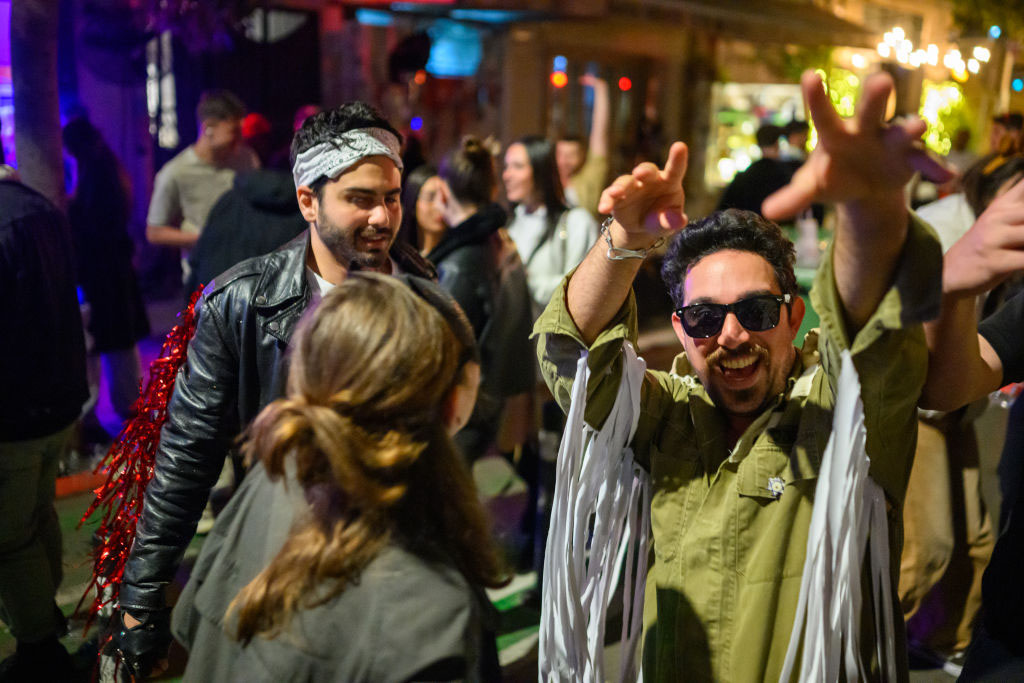




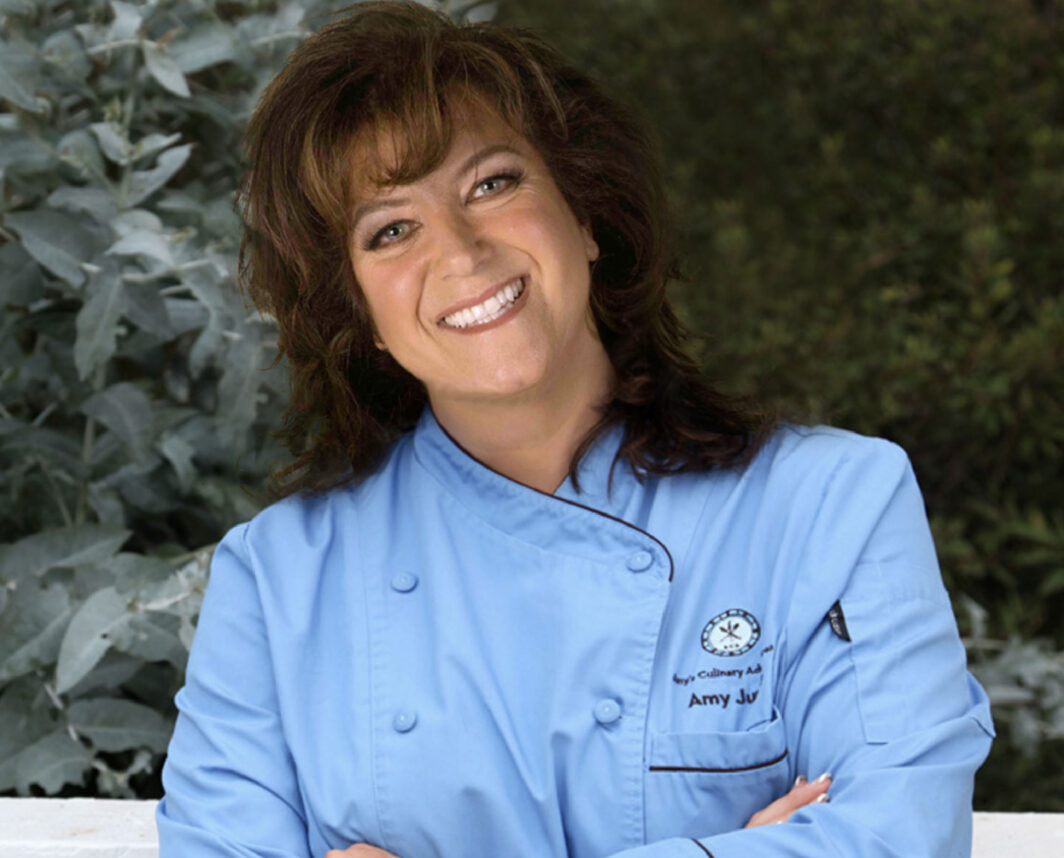
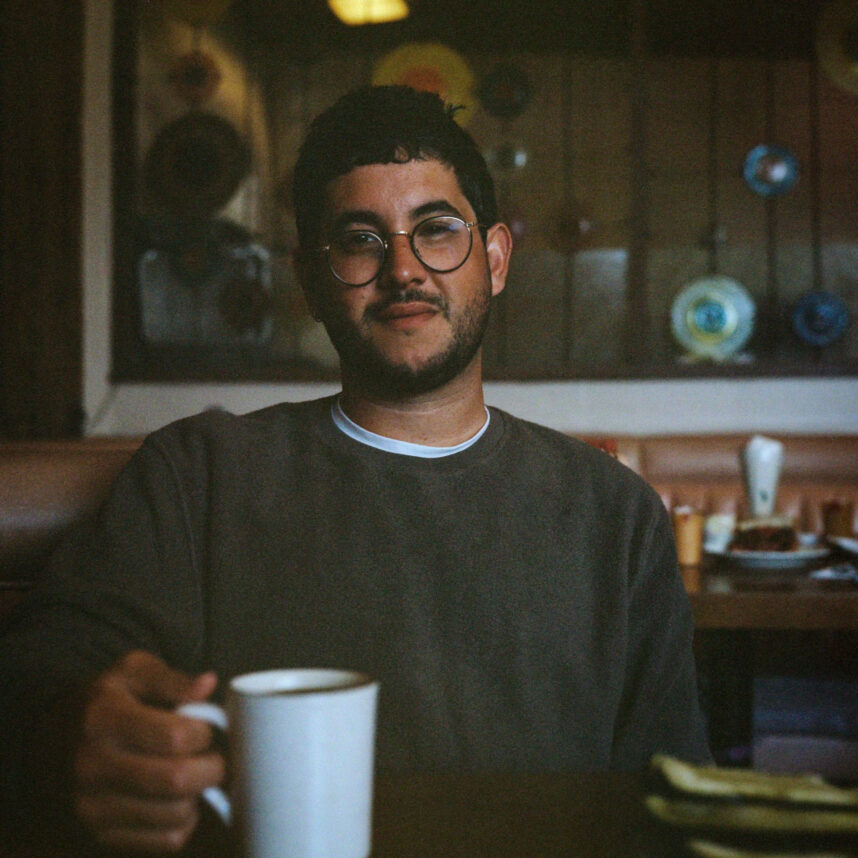
 More news and opinions than at a Shabbat dinner, right in your inbox.
More news and opinions than at a Shabbat dinner, right in your inbox.